Mobility Ideas Abound at the Web Summit in Portugal
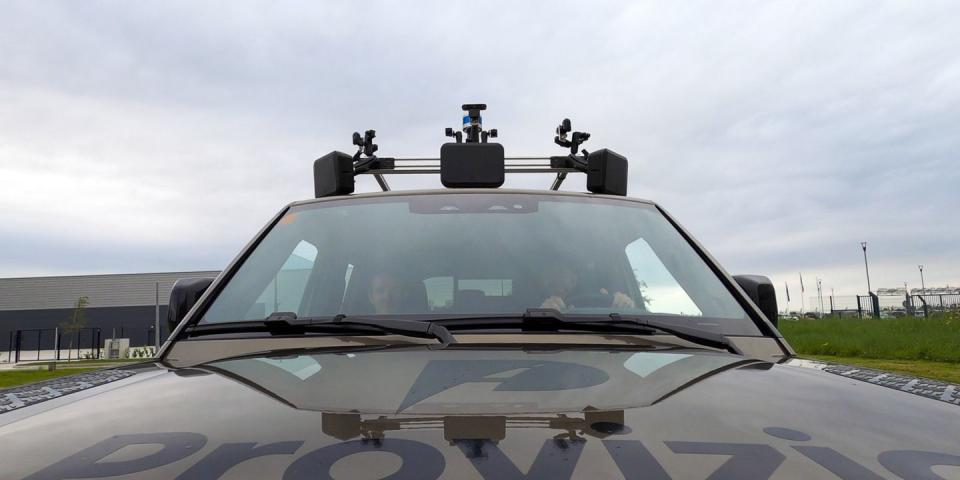
The annual Web Summit in Portugal is much like the Consumer Electronics Show in the States.
The tech conference focuses more on startups and young entrepreneurs, with eco-friendly tech and green initiatives figuring prominently.
Electric vehicle companies and autonomous tech developers were well represented this year.
What is the Web Summit? It’s an annual tech conference in Lisbon, Portugal, that should have a higher profile in the U.S. The best way to look at is as Europe’s version of the much bigger Consumer Electronics Show (CES). The emphasis is on young entrepreneurs and startups, with a strong sustainability focus. The 2022 event was November 1 to 4, with presenters from all over the world. Here are some highlights.
Toussaint Wattine had one of the simplest but also the smartest startups at Web Summit. His Paris-based company, Upway, reconditions and sells used electric bikes. “It’s the Carvana of e-bikes,” he said. “We realized there was a huge interest in e-bikes, and we want to speed the adoption curve. Right now they’re too expensive, but we envision 80 percent of the population having at least one e-bike.”
The company, with 50 employees now, has operations in Germany, France, the Netherlands, and Belgium. The staff mechanics take in barely working bikes, get them as-new again, then ships them semi-dismantled in cardboard boxes. Used prices range from €500 to €8000 for a really top-end machine. The average Upway bike goes for €2000 euros, and 5000 bikes have been reconditioned and sold. There’s a one-year guarantee. E-bikes are finally taking hold in the US, too, and that’s why Upway is opening a warehouse in Brooklyn. California is next. Since the dollar and euro are on par, expect prices to be the same $500 to $8000.
In Europe bike makers are required to keep spare parts on hand for at least five years after the model is no longer made, which must be a big boon to the reconditioning business. That might be harder for the U.S. But Wattine said that manufacturers want to work with his company, because it aids in the resale value of their older models.
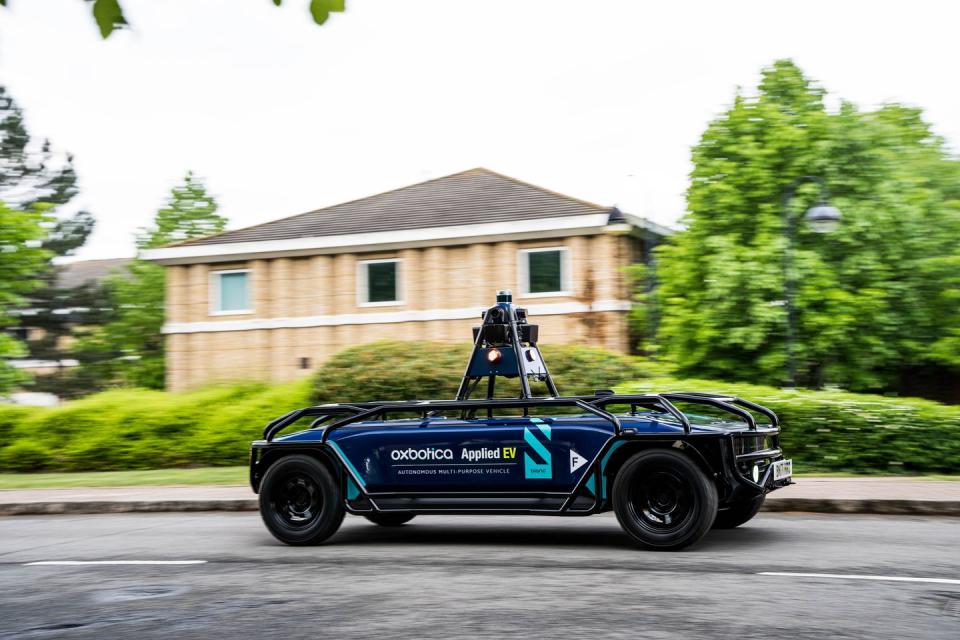
CEO Gavin Jackson of British startup Oxbotica has an interesting approach to what he calls “universal autonomy.” He told Autoweek, “We don’t see Knight Rider-type robotic automobiles happening anytime soon. It’s not a good use of the technology. Our onboard open-technology niche will be in helping farmers get better agricultural productivity, working with the mining industry, and helping trucking companies deal with the driver shortage.” One such application is via BP, which has trialed Oxbotica vehicles for monitoring refinery operations. Another use is looking for hot spots in big solar farms.
Oxbotica’s technology, using cameras and Lidar, is an intellectual property spinoff from Oxford University. It is opening offices in Seattle and Boulder, Colorado.
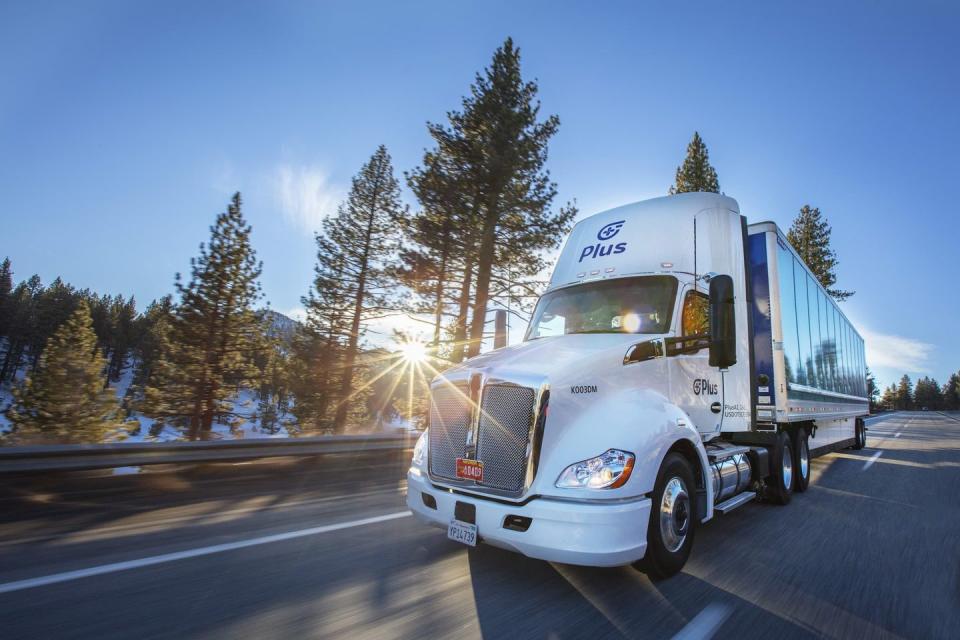
The California-based startup Plus has come to similar conclusions. Shawn Kerrigan, co-founder and chief operating officer, said that trucking is offering the first opportunity to scale autonomous technology. “We have to work within the constraints of the industry as it is today,” he said. That means no fully autonomous passenger cars anytime soon. In 2019, Plus successfully conducted the first freight delivery across the U.S. without an onboard driver. Since last year, Plus has been able to offer trucking companies the chance to increase safety, fuel economy and (via autonomous operation on highways) passenger/driver comfort through its PlusDrive application.
“We’re agnostic as to truck brand or powertrain,” Kerrigan told Autoweek. “We can work with the company fleets. And we promise a return-on-investment payback in less than two years.” He said fuel savings can be 10 percent through smoother driving. Amazon is testing Plus in fleet operations.
A third operator in the space is the Irish company Provizio. Barry Lunn, founder and CEO, told Autoweek that by using cheaper radar instead of expensive Lidar he’s able to offer fleet operators wanting the increase the safety margin “a solution costing $50 instead of $5,000. With radar-based technology at every corner we can see multiple vehicles ahead, track their velocity, and have the driver alert and braking before a situation arises.” He said his technology is more sophisticated than the front collision warning offered on many cars today as part of safety suites. “It’s front collision on steroids,” he said. “The driver won’t have any surprises.”
Celus is a German company that makes software aimed at working around the chip shortage. It’s a cloud-based engineering platform that uses AI and smart algorithms to solve knotty problems. Tell the company what you want an ECU or component to do, and it will find available chips and technology to make it, shortening what is often a highly manual, time-intensive process. Target customers are auto product designers. “We automate the process,” said Alexander Pohl, Celus’ co-founder and chief technology officer. “There are always alternatives.”
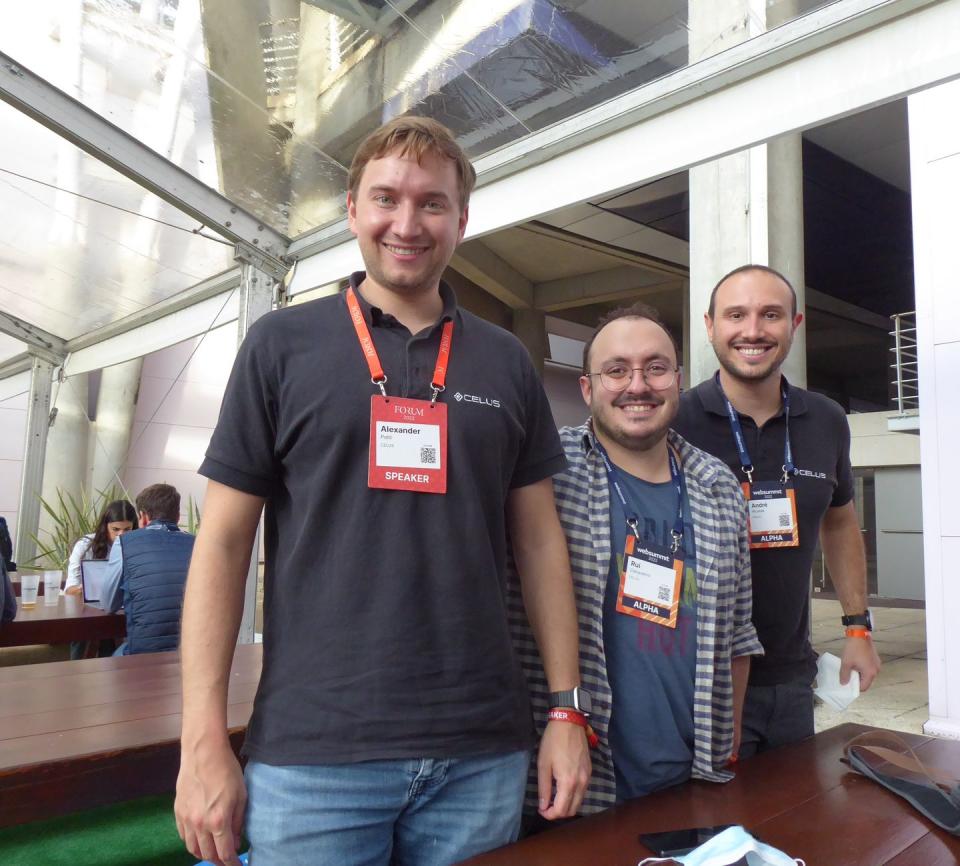
Changing a chip can change the way the whole circuit board functions, but Pohl said his team always keeps track of the product’s functionality. Celus says it “selects digital twins of electronic components and electronic circuits, thereby replacing the PDF-based data sheets and application notes conventionally consulted in the design process of new projects.”
Much the same approach, but with EV battery research as the target, is the aim of startup Voltaiq, founded in 2012. It takes the reams of data coming off batteries being tested and helps companies save time by interpreting it in useful ways via its proprietary software. “Batteries are a data problem, in a very immature ecosystem,” said Eli Leland, co-founder and chief technology officer. “And now we’ve passed the electrification tipping point and are hearing about a new gigafactory every day. Having the product malfunction can lead to billions of dollars in losses. What we offer is like an EKG for batteries.”
Voltaiq wasn’t at Web Summit, but probably should have been. Its customers include Mercedes-Benz, Google, Amazon, Microsoft, and Proterra (electric buses).
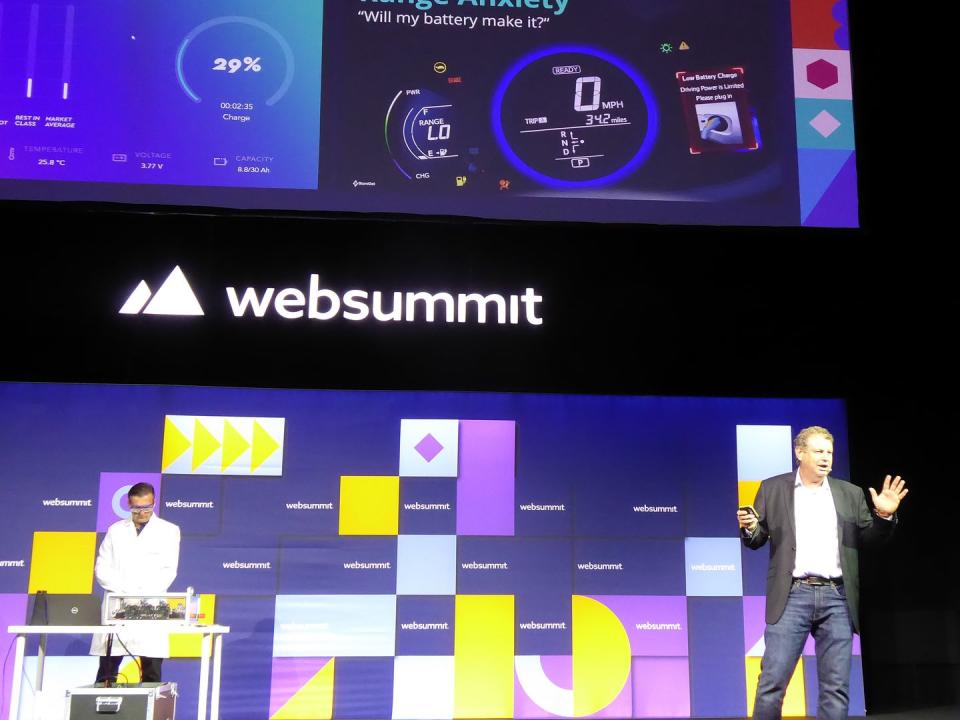
The Israeli battery startup StoreDot certainly knows how to make a splash. On stage at Web Summit, it fast-charged one of its new cells, with a silicone-based anode, from 10 to 80 percent in 10 minutes. “We can achieve at least 50 percent better charging speeds,” said Dr. Doron Myersdorf. “In five minutes you get 100 miles of range—in effect, range on demand.” In 2028, the target is 100 miles in three minutes.
Myersdorf also claimed his cells will not see any degradation from rapid charging. They’re good for at least 1000 cycles with repeated 350-kilowatt charging sessions, he said. “They don’t die,” he said, adding that 15 carmakers are testing StoreDot’s batteries.
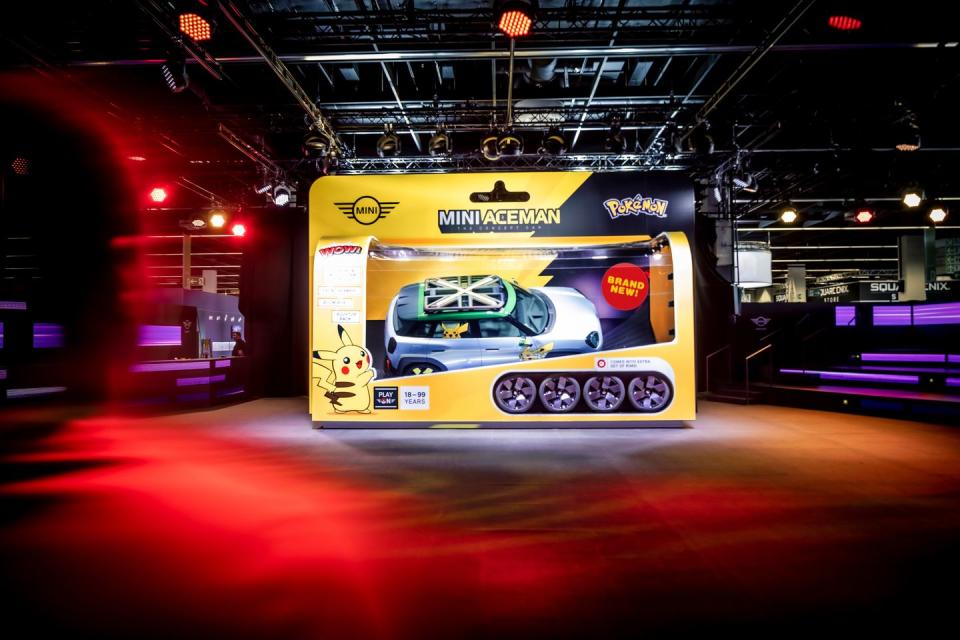
Is there a lighter side to EVs? “Mini is one of the most fun brands in any category,” Patrick McKenna, the chief marketing officer of Mini USA, told Autoweek. Under his leadership, the company is taking that literally. Instead of presenting the new Aceman electric vehicle concept roped off at an auto show, it displayed the EV at Gamescom in August packaged like a Pokémon toy, with the entire interior taken up. Pikachu welcomes the driver from the central OLED display, and there are various visual effects across the dashboard. A built-in cinema shows Pokémon highlights via an exterior projector. There’s also a virtual animated go-kart track requiring a virtual reality headset, debuted in Cannes. The new direction is being called the “MINIverse,” and seems to be aimed at encouraging customers to have a good time.
“Our owner community is organic,” McKenna told Autoweek. “We took 1000 owners on a road trip across America.” An appearance at Comic-Con next summer may also be in the works. For the Aceman, he said, “We went back to the 1959 Mini and tried to capture its simplicity, with toggle switches and an OLED display that looks like one of the original instruments.” Mini is just one of many brands that is finding opportunities to display its wares far away from the increasingly strained auto show circuit.
The brand, which now sells the Mini Electric, has plans to be 50 percent electric by 2027, and all-electric by the 2030s. An electric Mini Countryman is coming in 2023. A new generation of Mini Electrics could be with us for the 2024 model year. The last combustion-engine Mini comes out in 2025.
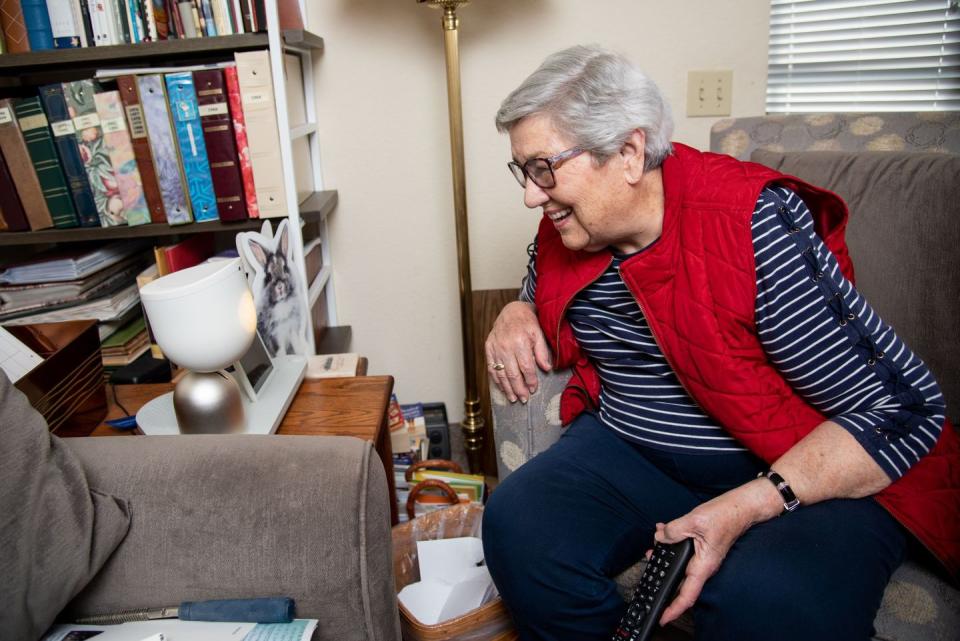
Rounding out a brace of interviews was an encounter with Dor Skuler, co-founder and CEO of Israel-based Intuition Robotics, makers of a tabletop robot named ElliQ. Imagine Alexa if her main focus was helping older adults get through their daily lives and you’re most of the way there. The target is people above 65 who live alone. “She [the voice is female] helps alleviate loneliness and take better care of yourself,” Skuler said. “She will ask questions like, ‘Is your hip still bothering you?’ and ‘Did you sleep well?’ She will remind you to hydrate. If something goes wrong, she will notify the appropriate people.” The company has raised $58 million so far.
New York State’s Office for the Aging thought enough of ElliQ to order more than 800 of them. The company’s research suggests that older people with ElliQ interact with her an average of 20 times a day. In a survey, 85 percent of users said they felt an increased sense of companionship.


 Yahoo Autos
Yahoo Autos 